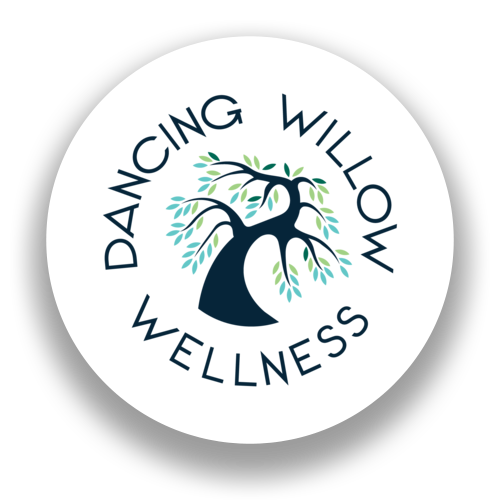
Resource Library
“I’m Sorry, I Forgot…”: The Reality of ADHD and Memory
"I'm sorry, I forgot..."—words many of us with ADHD know too well. Forgetfulness isn’t just annoying; it’s tied to working memory struggles unique to ADHD brains. Dive into practical, heartfelt strategies to tackle these challenges and reclaim your focus. Let’s face this together—because you’re not alone in this.
A Year of Choosing Joy
Start your journey to greater happiness with small steps by noticing one positive thing each day. This simple daily gratitude practice boosts joy, builds resilience, and shifts your focus toward the good. Embrace moments that matter, from a warm coffee to a quiet morning, and nurture lasting happiness in your life. Read more to see what a year of choosing joy uncovered.
The ADHD Brain and Emotions: Why We Overreact and How to Cope
Learn how ADHD affects emotional regulation and why overreactions often happen. This article explains the connection between the ADHD brain and emotions, highlighting coping strategies to manage emotional dysregulation. Improve your emotional well-being and gain practical tools to navigate life with ADHD more effectively.
What’s in a Name? Attention Deficit Hyperactivity Disorder
ADHD is often misunderstood and reduced to its most visible traits like hyperactivity and distractibility. But ADHD is far more complex than that. It’s a neurodevelopmental disorder affecting everything from emotional regulation to time management. In this series, I aim to explore the nuanced realities of living with ADHD.
Who Made Your Shirt? - A Gratitude Practice for Imperfect People
In a world that often feels rushed and disconnected, it’s easy to overlook the simple act of gratitude. “Who Made Your Shirt?” explores how a simple, small practice can transform ordinary moments into opportunities for deeper appreciation, connection, and inner peace. Read on to learn more.
Orange Shirt Day: Honouring the Past and Building a Better Future
Orange Shirt Day has profound significance in Canada as it commemorates the survivors of residential schools and their families. Learn about its origins, the ongoing impact of colonization, and how you can contribute to a more inclusive future. Every child matters—find out why.
How to Get Stuff Done: Part 1
Many of us struggle to get things done – whether that’s a long term work project or simply folding the laundry (ok, maybe especially folding the laundry).
There are many wonderful motivational speakers and resources that offer anything from gentle encouragement to a proverbial kick in the rear to help folks accomplish their goals. I am not one of these people, and this is not a motivational article.
This is about the things we need besides motivation to accomplish a goal, and how to make those things work for you.
How to Change Your Habits and Make it Stick - Part 3
We can’t stop habits from forming and nor do we want to! Habits help us! Habits are great when they work for us and not against us. Whenever we want to change our routines, we need to change our habits. This is especially true every time there’s a change in season or a change in routine. Think back to the end of August and the beginning of September. There’s a lot of change in a couple short weeks. Not having habits and routines that support you can make changing things harder than it needs to be.
Changing habits can be as easy as making the new habit easy or making something we want to stop doing more difficult. As humans, we naturally gravitate towards easy over hard - let that work for you in this case!
Back to School: 10 Study Habits for Students of Every Age
Personally, I am currently pursuing a degree in Health Sciences. Navigating my path back to academia as a mature learner has introduced its own set of challenges, including the delicate juggling act of harmonizing work, family commitments, and scholarly pursuits. I've also had to embrace the task of acquainting myself with emerging technologies, all the while recognizing that my ability to absorb copious volumes of new information is not quite as swift as it once was.
Incorporating the demands of learning into an already busy life has compelled me to become very efficient in learning and coursework. I have been intentional in creating study habits that give me the best chance of staying on top of coursework and being successful in exams.
How to Change Your Habits and Make it Stick - Part 1
Our lives are run by habit. We wouldn’t be able to do the majority of the things we do in the day without habits. This doesn’t make habits wrong, right, good, bad, healthy, unhealthy… Habits simply are. Habits by nature are subconscious and exist solely to respond to different stimuli (pop over and read How Habits Affect Your Life if you want to understand why habits better).
Health - What is it really?
"Health is a state of complete physical, mental and social well-being and not merely the absence of disease or infirmity." - Health as defined by the World Health Organization
I've come to believe that if I want to thrive, I must invest in my health. If I want to merely survive, I can treat health as an expense and treat symptoms as they arise. For years I treated my health as an expense and opted for the cheapest solution. I struggled with iron deficiency anemia, chronic fatigue syndrome, debilitating periods and more. Unlike most practitioners, I understand chronic illness and the struggles it creates because I’ve lived with it.
Hypnosis and Chronic Illness – A Pathway to Healing
Living with a chronic illness is an immense challenge that affects millions of people worldwide. Traditional medical treatments often focus on managing symptoms, but what if there was an alternate approach that could tap into the mind's innate healing abilities? Hypnosis is a therapeutic technique that employs the power of suggestion and deep relaxation to alleviate symptoms and improve the overall well-being of individuals with chronic illnesses.
Surprising Things You Will Learn In Couples Counselling
Couples counselling is always a learning experience for all parties. I wanted to offer a glimpse behind-the-scenes of couples counselling, but that is a tall order! Each session, each couple, is so unique; that processes vary tremendously.
So, here are a few surprising lessons that I’ve seen couples learn during relationship counselling.
Psychologist? Psychotherapist? Psychiatrist? What's the difference?
All these ‘psychs’ are confusing!
When you’re looking for help for yourself, or a loved one, it may feel like mental health services have their own language. All the different terms for therapies, professional designations and various agencies/centres can be frustrating and discouraging.
I am here to set the record straight. I am going to provide you with some insight into each of these professions, with a combination of facts as well as my experience working with each of these healthcare practitioners.
Pets - Unexpected Health Benefits Beyond Unconditional Love
When I was a child, I used to beg my parents for a pet; sadly, they never gave in. However, I found a way around that! I started babysitting our neighbours pets when they were away, this began a lifelong love of cats (and the occasional dog).
Little did I know then what a profound effect having pets would have on me.
My husband and I currently have four cats - Jane, Darcy, Toes and Lizzie. They each have such unique personalities and quirks. I truly can’t imagine life without them.
Happy Pi(e) Day!
In honour of International Pi/Mathematics day, I would like to do an experiment with you where we imagine two different scenarios.
First, imagine somebody has made you a pie. You appreciate the gesture and set the pie on your counter. You’re on a diet and not allowed to eat pie. Maybe you’re not on a specific diet, but you don’t think pie is good for you or you’re concerned about the amount of sugar and carbs in it. Throughout the day, you walk past the pie and are tempted to eat a piece, but restrain yourself and don’t. By the end of the day, you say what the heck and decide to quickly shovel a piece in your mouth. Quick and dirty, you get it over with so you can stop thinking about it. Do you feel guilty that you ate a piece? Do you beat yourself up for not having more willpower? Did you even really taste the pie? Did you end up eating another piece or 2 so you could actually taste the pie? Maybe you ate it and moved on with your day, not giving it much more thought.
Why is Therapy So Damn Expensive!?!
Deciding to go to therapy is a huge decision that requires courage. So, when you see the fees associated with therapy, it’s hard not to feel dismay and dread.
You start to think….“You charge how much?”, “ An hour is actually 50 minutes?”, and “ You suggest I see you every week?” After some quick mental math, you may think to yourself, “I am in the wrong line of work. I should have been a therapist, and I would be rolling in dough!”.
Believe me -you are not alone in having this line of thinking. In fact, that hourly rate creates tension for all parties involved (we know the financial realities of Canadians).
Put Your Own Oxygen Mask On First
For anyone who’s ever taken a flight, you’ve all heard the safety demonstration telling you to put your own oxygen mask on first, before you help others to do the same. This doesn’t just apply to flights, emergencies and cabin pressure changes.
The reality is, that as women, we need to learn to put our own oxygen masks on everyday.
Recently, I’ve heard from several women that they’re putting themselves last. Some want to make a change and put themselves first and others have said that they “don’t exist” until a certain point because they’re so overwhelmed by life, the demands on their time and energy, as well as everything else that’s happening on a daily basis. This also includes caring for their loved one.
Accepting Your Body as an Act of Rebellion
“I’m so bad”, she states as she reaches for a cookie. “No I can’t, I’m trying to be good” as she declines an offer of a homemade muffin. We’ve all heard these phrases, and have probably said them, or something similar, ourselves. When we pause to reflect on these phrases, we can discern how we’re assigning moral value to food choices. Letting what we eat determine whether we’re “good” or “bad”. Our worth is not based on which foods we choose to eat or choose not to eat.
How Counselling can Help with Winter Blues
As Canadians, our mental health can dive during the winter months.“About 15% of people in Canada experience the winter blues, while only about 2-3% of people in Canada experience SAD (Seasonal Affective Disorder)” (Canadian Journal of Psychiatry, 2000).
If that doesn’t sound like a lot, that’s about 5,737,500 Canadians experiencing the winter blues yearly! So, how can counselling or therapy help with that?




















